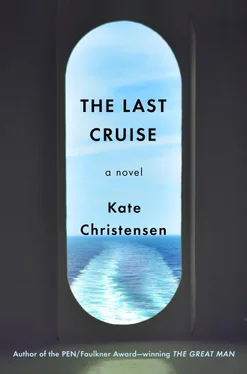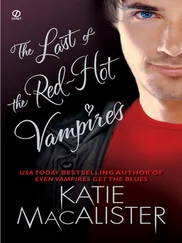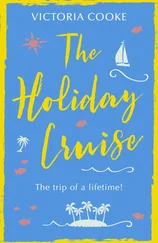But she always did, rudderless and powerless though she was. She seemed to have an internal sense of equilibrium. Whoever had designed her had known what he was doing, Christine thought. She had been refurbished twice, but the shape of her bones and lines had never changed. Her original designer’s expertise was saving all their lives.
As if to prove her wrong, the ship jolted and pitched. Christine and Valerie crashed into each other and the wall. The room tilted. They landed on the floor, rolled, and lay there, trembling, too shocked to say anything for a moment.
“We’re going to die,” said Valerie. “This is it.”
“No,” said Christine. “We’re going to be fine.”
They heard two loud, high blasts, short and long, that signaled an emergency, and then a voice came sharp and commanding over the PA system: “May I have your attention please. Everyone, go immediately to your muster stations. I repeat, go to your muster stations. Please don’t panic, this is a precaution only, we are not in immediate danger, I repeat, this is a precaution only.”
“Oh my God,” said Valerie.
“Time to go,” said Christine. “Pack your things. Now, Val.”
She had already sealed her own phone and wallet and plane ticket home in a plastic bag, zipped into the inner pocket of her jacket. She watched Valerie stuff things into a shoulder bag, her iPhone, notebooks, laptop, jewelry, a cashmere sweater, her expensive Williamsburg designer dress. Christine thought of the green ball gown she’d worn to the captain’s table dinner, the gloves and shoes and jewelry, how much they’d cost, Ed’s future consternation when he got the statement and saw the amount there among the charges for propane, fuel, and groceries. She saw the ball gown drifting down to the bottom of the Pacific Ocean.
“Should I bring my shoes?” said Valerie. “Shampoo?”
“No!” said Christine. “Let’s go.”
They went out into the hallway and joined the mass of terrified people making their slow way to the stairs. Christine could hear Valerie’s rasping breath behind her as they plunged through the crowd, and then she lost her and couldn’t find her again. Emerging from the stairs onto the lifeboat deck, standing in the press of people at Muster Station Two, Christine caught a contagion of hysteria. Her vision zoomed in again and again through a black, cone-shaped tunnel. She felt a hard pressure on her chest, seeing strangers’ faces in the blowing rain, hearing a hard wash of waves and the banging and creaking of the crew, their frenzied shouts as they prepared to load the boats and winch them down. Dizzy, short of breath, she lurched against the railing and caught herself. The lifeboats looked like death traps, far too small for the hordes of people being herded into them, strung by cables, hanging high above the churning, dangerous sea surface, flimsy and precarious.
Christine knew all at once beyond a doubt that when her turn came, she would not be able to get into one of those jam-packed capsules. The image of the octopus trapped in its little tank kept flashing in her brain. She looked around for Valerie, but she didn’t see her anywhere. The crowd was too closely packed behind her to go back, so Christine fought her way along the deck toward the nearest staircase leading up, where the tide of humans streaming down wasn’t as thick, and pushed her way upward. “Excuse me,” she said, “sorry,” and she threaded through faceless bodies, heard heavy breathing, low moans, keening, the sounds all animals made when they were afraid and in distress.
As she ascended, she began to breathe freely again with relief. Her vision cleared. Bursting onto the catwalk that led to the bridge, she felt triumphant, as if she had escaped to freedom.
*
Miriam, Isaac, and Rivka left the suite together to climb down to the lifeboats, but Miriam was quickly separated from the other two on the thronged staircase. Sasha hadn’t come back from down below. He’d gone down at some point during the storm to monitor the engine room’s fire-damaged hull, fearing a leak. She could only hope that he’d heard the PA announcement, the clear directions to head for the muster stations. And she hoped even more that he would have the sense to obey it. She made her way through deckwide pandemonium, windblown shouting and chaos, people vivid in the bilious dawn light in their neon orange life vests. In the high winds, the lifeboats shuddered and swayed in their berths against the hull of the ship. Crewmembers had begun to untie ropes and instruct people to embark. It was clear from their gestures and shouted directions to one another that, in the absence of power, they were preparing to lower the lifeboats manually, once they were filled with people, winching them by hand the whole distance of several decks down to the turbulent surface. They looked so fragile, precarious, these lifeboats, creaking and swaying as they hung there. And everyone was going to have to get into these things and ride them down to the ocean, trusting in the ability of the exhausted and clearly panicked crew. How the crew planned to get themselves down, Miriam had no idea.
Where was Sasha? She looked around for him and saw only a sea of strangers’ faces. She was not getting into one of those things without him, she was not leaving him behind on this ship. They had to go together. Determined to find him, she began fighting her way back to the staircase, beating against the flow of people surging onto the deck.
She hesitated, imagining herself searching for him in the dark labyrinth below. She would never find him. But she could have the bridge crew page him on the PA and tell him to go to his muster station.
Instead of going down, she went up.
*
At some point after daybreak, Mick realized that the storm wasn’t going to last forever. And then, just as he was thinking about where to go, the biggest wave of all knocked the ship sideways, kept coming, rolling and tipping the ship until she lay flat on her side. He rolled against the inner wall of the restaurant bar as the side of the ship rose and hung there, suspended. Then she fell back, slowly righting herself as she slid down the other side of another immense, invisible wave. Bottles of booze clinked and rattled overhead. A martini strainer landed on his shoulder. On the other side of the bar, he could hear the tables and chairs shifting, sliding, toppling, plates crashing onto the floor, the wall panels chafing against one another, flexing.
He left the wrecked, tumbled restaurant and made his lurching way through the hallway and up the grand staircase, then along the promenade and up the inner staircase to the bridge. The ship was a mess. It smelled of booze from broken bottles, and shit and urine and vomit. Everything that wasn’t bolted down had slid and bounced during the night. Although the ocean was still turbulent, the ship was rolling less dramatically now, so it was possible to walk without falling against the walls. All the sick people had been moved down to their cabins for safety during the storm, but many others were up and about already, restless, panicky. Everyone wore a neon-orange life jacket. Some people stared out the windows at the still-violent sea in the uneasy morning light, huddled together; others crouched in corners, clung to columns, to one another. Some of them had cuts on their foreheads, abrasions on their arms. Locks of white and silver-gray and dyed blond and jet-black hair fluttered and waved and pasted themselves to brows. Voices were quavering, hoarse, shocked.
He made his way, squeezing through the throngs of people, until he reached the staircase leading up to the bridge, then climbed upward as fast as he could go. When he came in, he was surprised to find the captain in uniform, sitting almost doubled-over in one of the bridge command chairs. He looked severely pale and sickly. A handful of other bridge officers were there too, wearing life vests over their uniforms. One of them stood by the PA system. Several others clustered around the doorway. Mick saw Kimmi, clinging to the console under the windows, looking out.
Читать дальше












